
Kód: 01681306
Account for the polarisation of South African society between 1960 and 1964
Autor Murray Baird
Essay from the year 2007 in the subject History - World History - Modern History, printed single-sided, grade: 1c, University of Stirling, course: Apartheid and Resistance in South Africa, 1948 1994, language: English, abstract: A ... celý popis
- Jazyk:
 Angličtina
Angličtina - Vazba: Brožovaná
- Počet stran: 32
Nakladatelství: Grin Publishing, 2012
- Více informací o knize

Mohlo by se vám také líbit
Darujte tuto knihu ještě dnes
- Objednejte knihu a zvolte Zaslat jako dárek.
- Obratem obdržíte darovací poukaz na knihu, který můžete ihned předat obdarovanému.
- Knihu zašleme na adresu obdarovaného, o nic se nestaráte.
Více informací o knize Account for the polarisation of South African society between 1960 and 1964
Nákupem získáte 108 bodů
 Anotace knihy
Anotace knihy
Essay from the year 2007 in the subject History - World History - Modern History, printed single-sided, grade: 1c, University of Stirling, course: Apartheid and Resistance in South Africa, 1948 1994, language: English, abstract: Apartheid and Resistance in South Africa, 1948 1994Any account of the polarisation of African society into distinct white and black polarities, on the right and left wings of the political spectrum respectively, between 1960 and 1964 must be considered in the light of pre-existing relationships between whites and non-whites in South Africa, which manifested themselves in microcosm with events at Sharpeville on 21 March 1960. Critical to the discussion will be the role played by the National Party government, particularly relating to the creation of the Republic of South Africa in 1961, withdrawal from the Commonwealth of Nations in the same year, the 1961 General Election and the government s racial policy. The function of the United Party, as the party of Official opposition, will also be scrutinised, together with the role of the Liberal Party and the Progressive Party. Analysis of the ideologies of the African resistance movements, including the African National Congress, with Umkhonto we Sizwe, and the Pan-Africanist Congress, with Poqo, will further reveal reasons for the adoption of extreme opposing attitudes. Moreover, these diametric attitudes were subjected to influence from, and response to, international events both within Africa and globally.
 Parametry knihy
Parametry knihy
Zařazení knihy Knihy v angličtině Humanities History
1084 Kč
- Plný název: Account for the polarisation of South African society between 1960 and 1964
- Autor: Murray Baird
- Jazyk:
 Angličtina
Angličtina - Vazba: Brožovaná
- Počet stran: 32
- EAN: 9783656297185
- ISBN: 3656297185
- ID: 01681306
- Nakladatelství: Grin Publishing
- Hmotnost: 54 g
- Rozměry: 210 × 148 × 3 mm
- Datum vydání: 28. October 2012
Oblíbené z jiného soudku
-

American Duchess Guide to 18th Century Beauty
568 Kč -

Maus II
397 Kč -

Fall of Public Man
423 Kč -
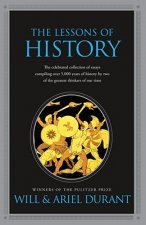
The Lessons of History
276 Kč -

Falsification of History: Our Distorted Reality
814 Kč -

Gaza
884 Kč -

God's Playground
1129 Kč -

Nalbinding - What in the World Is That?
525 Kč -

Encyclopedia of Japanese Swords (Paperback)
1297 Kč -

War Is a Force that Gives Us Meaning
372 Kč -

National Geographic The Old West
951 Kč -
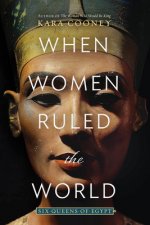
When Women Ruled the World
556 Kč -

Words of My Perfect Teacher
1056 Kč -

Music of Ralph Vaughan Williams
742 Kč -

Financial Vipers Of Venice
400 Kč -
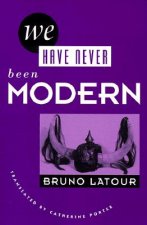
We Have Never Been Modern
887 Kč -

Shadowplay: Behind the Lines and Under Fire
276 Kč -

Guns Germs and Steel
616 Kč -

Kingdom in the Sun, 1130-1194
357 Kč -
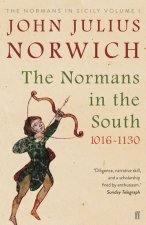
Normans in the South, 1016-1130
357 Kč -

On the Origins of War
429 Kč -

Global Crisis
484 Kč -

Impeccable Spy
303 Kč -

Ship of Ghosts
486 Kč -

Modern African Wars (1)
473 Kč -

Madness in Civilization
464 Kč -

Corpus Iuris Civilis Romani
570 Kč -

Victorian Jewellery
956 Kč -

Blood Royal
494 Kč -

Life
319 Kč -

CALULUS FOR THE PRACTICAL MAN
820 Kč -

Unknown Warriors
983 Kč -

Police Uniforms of Europe 1615 - 2015 Volume Two
1335 Kč -

Across The Hall
621 Kč -

Splendid Isolation?
780 Kč -

Uniforms of the U.S. State Police & Highway Patrols
1000 Kč -

Germany's Gold
745 Kč -

Enemies of the Later Roman Order - A Study of the Phenomenon of Language Aggression in the Theodosian Code, Post-Theodosian Novels, and the S
315 Kč -

Demetrios of Scepsis and His Troikos Diakosmos
820 Kč -

Abbasid Caliphate
814 Kč -

Ancient Egypt
1008 Kč -

Battle for Manila
463 Kč -
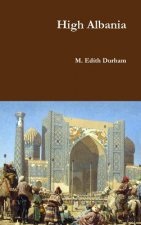
High Albania
845 Kč -

Sourcebook for Garden Archaeology
5037 Kč -

Killers of the Flower Moon
265 Kč -

God's Playground
1170 Kč -

Iron Kingdom
514 Kč -

Empires of the Silk Road
492 Kč -

Landmark Julius Caesar
703 Kč
Osobní odběr Praha, Brno a 12903 dalších
Copyright ©2008-24 nejlevnejsi-knihy.cz Všechna práva vyhrazenaSoukromíCookies



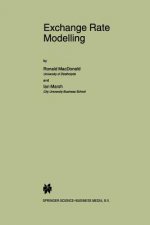

 Vrácení do měsíce
Vrácení do měsíce 571 999 099 (8-15.30h)
571 999 099 (8-15.30h)